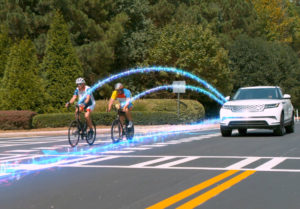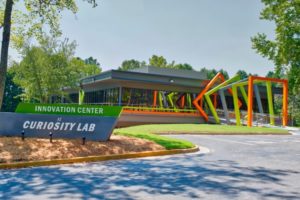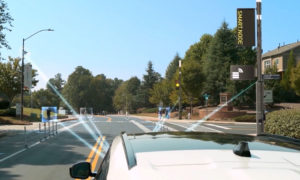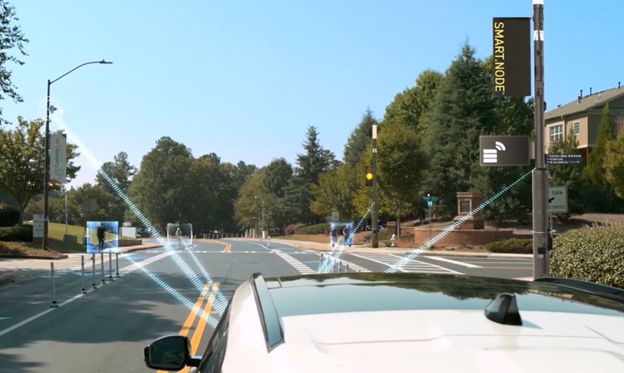Curiosity Lab sits at the heart of the Silicon Orchard located in Peachtree Corners. As you drive through our 3-mile smart city corridor, much of the technology deployed along our ‘city street of the future’ is blind to the eye – you may not even know you have entered our smart city.

Peachtree Corners city managers have seamlessly integrated managing our deployed smart city technology on a daily basis. With Brandon Branham being both the Assistant City Manager of Peachtree Corners and the Executive Director of the Curiosity Lab, our city has a hands-on approach that allows us to use our smart city technology to the fullest to benefit our citizens.
No matter if you are a long-term resident or a visitor, you might have found yourself asking, what does it really mean to be a smart city? There is no simple answer to this question. Almost every city and city manager will have their own definition and view on what this term means. However, to the City of Peachtree Corners, our smart city is a municipality that uses cutting-edge technologies to increase operational efficiency and improve the daily lives and safety of residents and visitors, while driving economic growth for the city. Through public-private partnerships, the city and smart city is able to form strong relationships with private companies and startups who want to deploy their technologies at Curiosity Lab.

In a smart city, technology runs through the city like the nervous system runs through the human body. In other words, technology can be seen everywhere you look, all for the purpose of safety, efficiency and connectivity. In Peachtree Corners, these various forms of technology have one detail in common: they all are used to significantly improve the value of life for residents and visitors of the smart city.
In addition, smart cities utilize sensors, IoT technologies, light imaging, detection and ranging (LiDAR) and other technologies to gather data and identify patterns that can be used to improve city functions. For example, Peachtree Corners uses 5G Traffic Signals, LiDAR, C-V2X technologies and more to keep drivers, pedestrians and our AV and EV shuttles connected. This makes our roads more efficient, improves road safety and elevates the overall management of our roads and traffic infrastructure. City managers can even identify road usage and plan roadway maintenance accordingly. For example, they are alerted when a traffic light malfunctions and is impacting traffic.
While most smart cities undergo rigorous evaluations and several levels of clearing before implementing technology, Peachtree Corners runs on another level of self-sufficiency because the city owns the city street and infrastructure. Technology can be quickly tested and implemented, with little bureaucracy. This detail makes Peachtree Corners extremely unique in comparison to other smart cities and is one of the key differentiators that make our smart city stand out.

Below is a short list of just some of the smart technologies utilized within our smart city. Take a tour of our website for more details on our smart city and the technology that makes our city unique.
- Beep AV+EV shuttles
- Ouster LiDAR
- Bosch Cameras
- 5G Traffic Signals
- The Ray Solar Roadway
- Smart Pedestrian Crosswalk signals
- T-Mobile 5G
- Dedicated Fiber Optic System to Power IoT Technologies
- Dedicated Short Range Communications
- IoT Control Room
- Smart Parking in Town Center
- Urban Canopee in Town Center
- And more
In 2023, there is more to come for our smart city as we introduce additional new firsts to the United States and the world. Next time you take a drive down Technology Parkway and pass through our Curiosity Lab smart city ecosystem, keep an eye out for the deployed smart city technologies that are improving the daily lives of our citizens.
